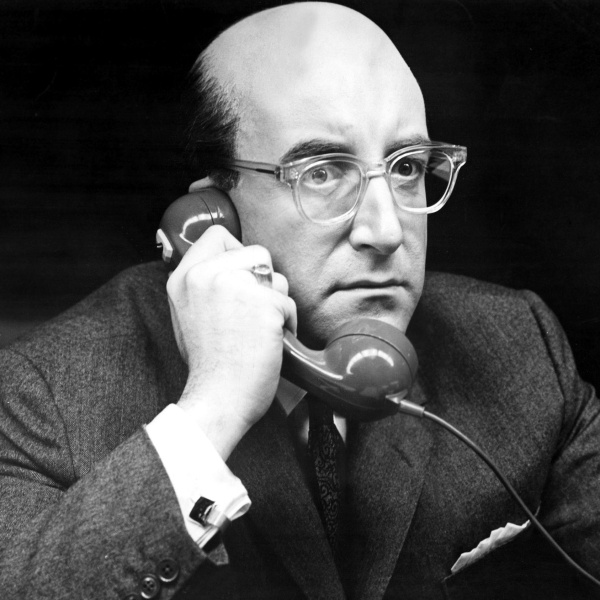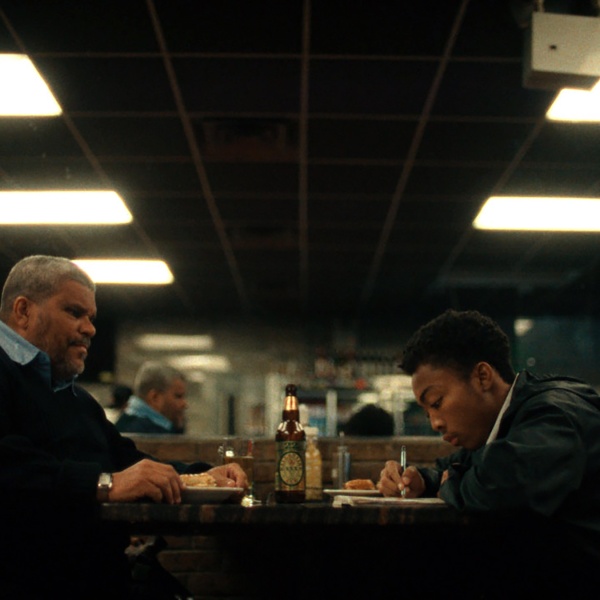
The following is a reprint of our review from TIFF with some corrections.
America’s greatest pastime hasn’t been in great shape lately. Plagued by drug scandals and general disenchantment with the sport that pays astronomical prices for out-of-shape guys to hit a ball four hundred feet or so, it seems the magic of the ol’ ballgame seems to have dissipated. This writer once religiously followed the sport, could rattle off batting lineups, bullpen rosters and second string second basemen at a moment’s notice. But of late, we haven’t had much reason to pay attention other than casually stopping in on games while flipping through channels. And while “Moneyball” won’t get us picking up the daily sports section again, Bennett Miller‘s enjoyable and rousing film is a tribute to that the game’s journeymen. The guys who aren’t mega-watt stars, but who hustle day in and day out for years, all for the love of the game.
The film opens with a hard lesson and one that every baseball fan knows: a team is only as good as their last game of the season. You may have had an improbably heroic run all season, but if you don’t take home the division or the World Series, it’s all forgotten. For Oakland A’s (entire roster under $40 million) GM Billy Beane (Brad Pitt), that sour feeling has settled in at the end of the 2001 season, with the New York Yankees (combined team payroll $130 million) taking the ALDS. Meeting with Stephen Schott (Bobby Kotick), the owner of the team, Beane learns he will be facing the 2002 season with a couple of problems: first, he’s not getting any more money to build a championship-contending team; second, he’s losing a few of his top players, including the now unaffordable Johnny Damon and Jason Giambi. As Schott notes, they are a second-market team and Beane is a second-market manager — he’ll just have to make do with the funds that are available to him.

Undeterred, Beane strives ahead and tries to negotiate for new talent. He stops to speak to the Cleveland Indians and while the meeting doesn’t go according to plan, he does notice the strange influence of a young man who advises management to hold on to seemingly forgettable players. His name is Peter Brand (Jonah Hill) and he believes baseball has it twisted. It’s not about power, looks or celebrity, it’s about numbers. Stats don’t lie, and Peter believes that there is a world of ballplayers that are being ignored simply because no one is analyzing them in the right way. Inspired by this young Yale economics graduate, Beane hires him to be his assistant GM in Oakland. Together, they dive headfirst into moneyball, hoping that looking at stats will help them build the kind of playoff-ready team they can’t afford to pay for.
But, even if Billy and Peter are willing to give moneyball a try, manager Art Howe (Philip Seymour Hoffman) isn’t. Played with the pitch perfect, understated surliness of anybody in the Oakland A’s organization, he understands how meaningless a great season can be if you lose the last game. With only a one year contract after a successful 2001 campaign, Art is already straining under the pressure of having to prove himself. He can’t stand betting the team’s season, and his career, on a system that is simply a lark. His reluctance is only exacerbated when he’s asked to take on players perceived to be past their prime (if they even had any prime to begin with) and in the case of Scott Hatteberg (Chris Pratt), retraining a catcher with a bad throwing arm into a first baseman.
If this seems like a familiar story about a rag tag bunch of underdogs who defy odds to win the big game, guess again. What emerges in the screenplay by Aaron Sorkin and Steve Zaillian, is something that will feel in some places tonally similar to “The Social Network.” Not unlike David Fincher‘s film that featured a good dose of tech talk, the duo makes terms like On Base Percentage and Earned Run Average and RBIs easy to understand for anyone who couldn’t care less about sport. Never getting lost in baseball lexicon, it’s a true credit to the writing that one of the most thrilling and satisfying scenes in the film (which you can see a clip from below) involves Beane and Brand in a marathon phone call session at the trade deadline as they try to land their player. The excitement comes not from the negotiation but instead from the stakes that have been clearly established, and watching Pitt/Hill as Beane/Brand wheel and deal is involving and exciting in a way that definitely feels like it’s from the pen of Sorkin.
Moreover, the film is frequently funny, finding ways to contrast the old-school and new-school ways of thinking through humor. In an early scene, Beane argues with his scouts, an ornery, elderly bunch (who are either real deal guys or the result of some solid casting), that focus on the smoothness of a swing or how attractive a potential player’s girlfriend is (if she’s ugly, he’s not confident). While “Moneyball” is certainly focused on the accomplishments of the Oakland A’s in 2002 — something we won’t address here because if you don’t know (or remember) it’s best to go in cold — like the Facebook movie, it’s also about the difficult birth of an idea. And between the two, Sorkin, Zaillian and Miller create a movie that is more rousing than Fincher’s film, with a much stronger emotional payoff not just for the audience, but for the characters as well.
But without the complexity of Beane, the film doesn’t work. It’s a wonderfully written part and it’s easy to see why Brad Pitt stuck with the film to get it made. Beane is a cynic who has been beaten down by the game, seen it all, and lived to tell the tale. Related in flashbacks through the film, Beane was a once promising prospect who just never lived up to expectations in the big leagues. While he outwardly believes in Brand’s system and does everything in his power to support it, inwardly he is still so hurt by the sport, he doesn’t even watch the games anymore. It’s a great performance by Pitt, one that finds his easy charm transformed into a devil-may-care defiance that masks much deeper fears and pain. As for Hill, it’s another solid turn by an actor who continues to prove he’s got much more than being a funnyman. It’s his most reserved and dialed back role to date, more or less playing the straightman to Pitt’s never-ending energy (Beane never stops moving or eating it seems). Could there be an Oscar nomination here? It’s a likeable and engaging turn touched with just enough depth that if the film takes off, we could see it happening. After all, he is Brad Pitt.
But not everything in the film works. Perhaps in an attempt to open up the story off the field, there is a very thin subplot involving Beane’s daughter and an even thinner one with his ex-wife (Robin Wright in what amounts to one scene and a couple of phone calls). It’s here where the film’s subtlety is tossed away for a much more blunt approach in using the daughter to peel back Beane’s emotional shield. It’s a bit hamfisted and corny, and when an obvious plot device rears its head in the final moments, you’ll be forgiven for rolling your eyes. These familial elements feel shoehorned and play like afterthoughts to an already well-developed screenplay and the film wouldn’t have been any lesser for losing them. The film clunkily rounds third as it heads toward the credits, with a lionization of Beane and his method that is laid on just a little too thick. Oh yeah, there are a handful of cameos so keep your eyes peeled for Spike Jonze in a pretty hilarious appearance and uh, Joe Satriani (really).
So, in short, “Moneyball” swings for the fences and hits a triple. There will likely be comparisons made to the other get-out-of-your-seat-and-cheer sports movie this month “Warrior,” but there are a couple of key differences. “Moneyball” doesn’t follow a predictable narrative arc like that film, and it isn’t afraid to end on a note of difficult, hard truth which gives the film a richness that is slightly more satisfying than the MMA drama. It has been a long time since we’ve had a great baseball movie, but “Moneyball” is one for our age. Smart and witty, Miller’s film finds the excitement in the sport that has long been missing from the actual game, and, thanks to a first rate script, comes at it from an angle that is frequently fresh, funny and invigorating. Combined with a great score from Michael Dynna and some solid work from “The Dark Knight” cinematographer Wally Pfister, it turns out the best place to see baseball is at your local multiplex. [B]





